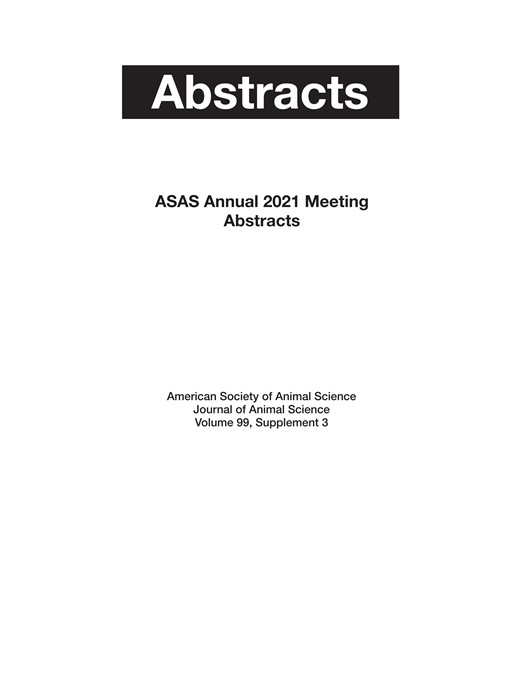-
Views
-
Cite
Cite
A Oliveira, P Yu, PSXIII-12 Exploring nutritional differences of canola seeds and bio-processing co-products (meals, pellets) from different processing plants/companies in Canada and China for dairy cattle, Journal of Animal Science, Volume 99, Issue Supplement_3, November 2021, Pages 461–462, https://doi.org/10.1093/jas/skab235.819
Close - Share Icon Share
Abstract
Canola was created as a low erucic acid and low glucosinolate seed, to produce high quality oil for human consumption and meal for use in livestock feed. China is an important user of Canadian canola products (seeds, oil, and meal). The extraction of the oil from the seed produces a co-product called canola meal. This meal is rich in protein and is used as a protein source in animal diets. However, differences in the characteristics of the seeds, or processing methods during oil extraction may affect the quality of this co-product. Plus, the synthesis of tissues and milk is related to the amino acids available to the animal for absorption in the small intestine. This study aimed to determine if there are significant differences in the intestinal digestibility (in vitro) of CP and DM between canola seeds and meals from different companies in Canada and to determine if there are significant differences between them in Canada and China. The three-step procedure was applied on residues from a 12-hour rumen incubation in fistulated dairy cows to estimate the intestinal digestibility of CP and DM. There were significant differences (P < 0.05) for TDDM (Total digestible dry matter) and IDP (intestinal digestibility of protein) of the meals between countries. The samples from China had higher TDDM (83.76% versus 81.53%, P = 0.018), while Canada’s had higher IDP (68.51% versus 65.28%, P = 0.016). No significant differences were observed within countries. Based on the material analyzed during this study, it is safe to affirm that there are no significant differences in the digestibility of DM and CP between Canada and China. It was concluded that the quality of the canola seeds or meals produced in both Canada and China were similar when used in dairy rations.
Key words: canola seeds and bio-processing co-products (meals, pellets), nutritional differences, dairy cows





